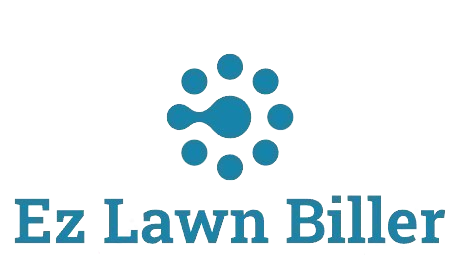How to Choose the Right Business Structure for Your Lawn Company
When starting a lawn care business, one of the most pivotal decisions you will make is choosing the right business structure. The business structure you select can significantly impact your legal liabilities, tax obligations, and even how you run your day-to-day operations. In this blog post, we will explore various business structures suitable for lawn companies, highlighting their advantages and disadvantages, legal considerations, and practical tips to make an informed choice.
Choosing the appropriate business structure is not just a formality; it is a foundational decision that can shape your business’s future. A well-selected structure can offer you legal protections, tax benefits, and the flexibility to grow your business efficiently. On the contrary, an unsuitable structure can lead to unnecessary complications down the road.
This article will delve into the most common types of business structures—sole proprietorships, partnerships, limited liability companies (LLCs), and corporations—focusing on their implications for a lawn care business. Additionally, we will provide practical guidelines and tools, such as how the right lawn billing software can assist you in managing your new business effectively.
Sole Proprietorship: The Simplest Structure
A sole proprietorship is the simplest and most common business structure for small businesses, including lawn care services. It is easy to set up and requires minimal regulatory paperwork. As a sole proprietor, you are the sole owner of the business and are fully responsible for its debts and obligations.
One significant advantage of a sole proprietorship is the ease of taxation. You report all income and losses on your personal tax return, simplifying the process. However, this also means that you are personally liable for any debts incurred by the business. This risk can be a substantial drawback, particularly in a service industry where liabilities can arise unexpectedly.
For many starting lawn companies, a sole proprietorship is an appealing choice due to its low cost and simplicity. However, it’s crucial to consider your risk tolerance and whether you can bear the financial burdens that might arise.
Partnerships: Collaboration at Its Best
If you plan to start your lawn care business with a partner, forming a partnership could be the right choice. Partnerships allow two or more individuals to share ownership of a business. Like sole proprietorships, partnerships are relatively easy to establish and do not require complex legal formalities.
There are two main types of partnerships: general partnerships, where all partners share equal responsibility, and limited partnerships, which allow certain partners to have limited liability. This flexibility enables you to tailor the partnership structure based on your needs. However, all partners in a general partnership are personally liable for the business’s debts, which can be a significant risk.
Partnerships can enhance collaboration and increase the resources available for your lawn care business. However, clear agreements and communication are essential to avoid misunderstandings and disputes between partners.
Limited Liability Companies (LLCs): The Best of Both Worlds
Limited Liability Companies (LLCs) have gained popularity among small business owners, including those in the lawn care industry. An LLC provides personal liability protection to its owners (referred to as members), shielding personal assets from business debts and claims. This structure combines the flexibility of a partnership with the liability protection of a corporation.
When you choose an LLC, you can enjoy the benefit of pass-through taxation, where profits and losses are reported on your personal tax return, avoiding the double taxation that corporations face. This combination of advantages makes an LLC particularly appealing for lawn companies looking to grow.
Establishing an LLC involves more paperwork than a sole proprietorship or partnership but is generally straightforward. Additionally, many states allow you to operate under a fictitious name, which can help with branding your lawn service. Using a comprehensive lawn service software can also aid in managing your operational needs efficiently.
Corporations: A More Complex Structure
Corporations are more complex business entities that provide the highest level of personal liability protection. They are separate legal entities from their owners, meaning that the owners (shareholders) are not personally liable for the corporation’s debts or liabilities. This structure is beneficial for larger lawn care companies that may face increased risks.
However, corporations are subject to more regulations and formalities, including holding regular meetings and maintaining detailed records. They also face double taxation, where corporate profits are taxed at the corporate level, and any dividends paid to shareholders are taxed again on their personal tax returns.
While corporations may not be the best choice for a small lawn care business, they can be advantageous for larger operations or those planning to seek outside investment. If you consider expanding your business significantly, starting as a corporation might be worth exploring.
Consider Your Business’s Future and Growth
When choosing the right business structure for your lawn company, it’s essential to consider your long-term goals. Ask yourself questions like: Do you plan to grow rapidly? Will you seek external funding or partners? Understanding your business trajectory can guide you towards the most suitable structure.
For instance, if you start as a sole proprietor but intend to expand and possibly incorporate later, you might want to consider setting up an LLC initially to ease that transition. This foresight can save you time and legal fees down the road.
Additionally, consider how each structure affects your ability to secure funding. Some lenders and investors may prefer to work with corporations or LLCs due to their established structures and liability protections. Having a solid financial management system in place, perhaps through a lawn company app, can also enhance your credibility when approaching banks or investors.
Compliance and Legal Considerations
Regardless of the business structure you choose, compliance with local, state, and federal regulations is crucial. This includes obtaining the necessary licenses and permits for operating a lawn care business in your area. Each structure may have different compliance requirements, so it’s essential to familiarize yourself with these before opening your doors.
Consulting with a legal professional who specializes in business formation can help you navigate the complexities of compliance. They can assist you in understanding the implications of each structure and ensuring that your business adheres to all regulatory requirements.
Additionally, having the right tools for billing and client management, like a reliable lawn service computer program, can streamline your operations. This helps keep track of services, expenses, and invoicing, making compliance easier to manage.
Tax Implications of Each Structure
Taxation is an important consideration when selecting your business structure. Each structure has unique tax implications that can impact your overall profitability. For instance, sole proprietorships and partnerships generally benefit from pass-through taxation, meaning business income is reported on the owners’ personal tax returns.
On the other hand, LLCs benefit from the same pass-through taxation while providing liability protection. Corporations face double taxation, which can significantly affect your bottom line if not managed properly. Understanding these tax ramifications is essential for strategic planning and financial forecasting.
Consulting with a tax advisor or accountant can provide valuable insights into how each structure will impact your tax situation, helping you make an informed decision. They can assist in estimating potential tax liabilities based on projected income, allowing you to choose a structure that aligns with your financial goals.
Choosing the Right Structure for Your Lawn Company
Ultimately, the right business structure for your lawn company will depend on various factors, including your goals, risk tolerance, and growth plans. Consider the advantages and disadvantages of each structure discussed in this article and how they align with your business vision.
It’s also essential to remain flexible, as your business needs may change over time. Regularly reassessing your business structure can ensure that it continues to meet your operational and financial requirements. Engaging with a professional can provide clarity and guidance as your business evolves.
As you embark on this journey, remember that the right lawn service app can help streamline your business processes, making it easier to manage your operations and focus on delivering exceptional service to your clients.
Conclusion
Choosing the right business structure for your lawn company is a significant decision that can shape your business’s future. Whether you opt for a sole proprietorship, partnership, LLC, or corporation, understanding the implications of each structure will empower you to make an informed choice.
By taking the time to evaluate your options, considering your long-term goals, and seeking professional guidance when necessary, you can set your lawn care business up for success. Remember, the right structure not only protects your personal assets but also positions your business for growth and sustainability in the competitive lawn care industry.
As you develop your business strategy, consider utilizing reliable tools like EZ Lawn Biller to enhance your operational efficiency. Investing in the right resources will allow you to focus on what you do best—providing fantastic lawn care services to your clients.




